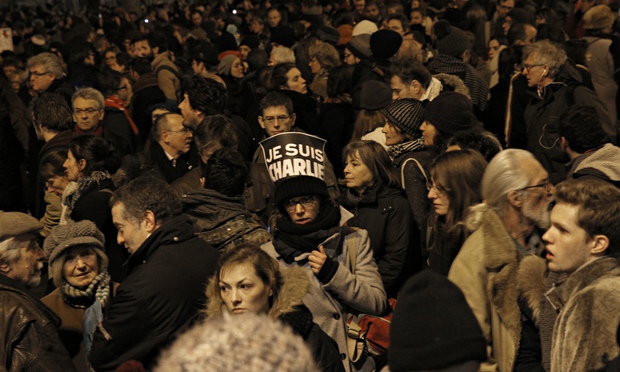
‘Charlie Hebdo’ and the end of the French exception
Today many are asking why Parisians have been attacked in their own city, and by their own people. But for many years the question for those following the issues of foreign policy and religion was why France had suffered so little terrorism in comparison to other European states. After the bombs on the Paris Metro and a TGV line in 1995, there were no significant Islamist attacks until the fire-bombing of the Charlie Hebdo office in November 2011, and the killings of three French soldiers (all of North African origin) and three Jewish children (and one teacher) by Mohamed Merah in Toulouse four months later. These attacks turn out to have been a warning of things to come.
But why was France free of such attacks for over fifteen years, when Madrid and London suffered endless plots and some major atrocities? Given the restrictions placed by successive governments on the foulard (headscarf) and the burka, together with the large French Muslim population (around 10% of the 64 million total), the country would seem to have been fertile ground for fundamentalist anger and terrorist outrages.
One view is that the French authorities were tougher and more effective than, say, the British who allowed Algerian extremists fleeing France after 1995 to find shelter in the Finsbury Park Mosque — to the fury of French officials. Another line is that the French secular model of integration, with no recognition of minorities or enthusiasm for multiculturalism, did actually work. Thus when riots took place in 2005 the alienated youth of the banlieues demanded jobs, fairness, and decent housing — not respect for Islam or Palestinian rights.
A third possible explanation of the long lull before this week’s storm is that French foreign policy had not provoked the kind of anger felt in Spain and Britain by their countries’ roles in the Iraq war, which France, Germany, and some other European states had clearly opposed. Although France had an important role in the allied operations in Afghanistan, its profile was not especially high. Given the slow-changing nature of international reputations the image of France as a friend of Arab states and of the Palestinians endured, while Britain drew hostile attention as the leading ally of the United States in the ‘war against terror’. France, again unlike Britain and the United States, has tended to be pragmatic in negotiations with those who have taken its citizens hostage abroad, facilitating the payment of ransoms and getting them home safely. Its policy was that payments, and the risk of encouraging further captures, were preferable to providing the Islamists with global publicity.










